Dawning of the great national realignment
Anthony Albanese signals a new style of government that may fit the time.
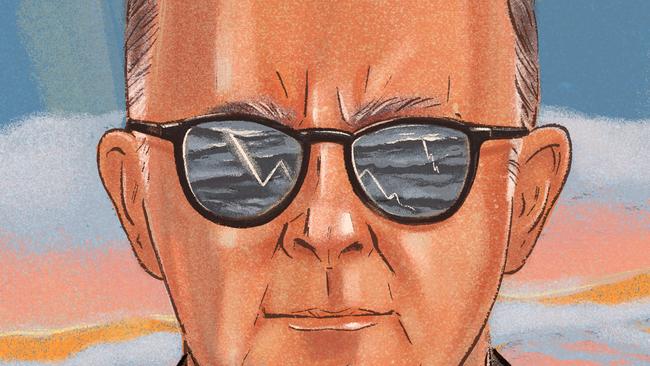
This is a realignment election and Albanese becomes a realignment prime minister. This is the pivotal point and his unique opportunity. The realignment gives Labor more advantages than are apparent. Albanese has signalled a new style of Labor government that may fit the times.
The dreams of frustrated conservatives that Labor will finish in a first term blow-up are highly improbable. While Albanese scored a narrow win against the Coalition, it is the success of the teals that empowers his prime ministership. This is a gift beyond his making. Albanese is the lucky beneficiary of a segmental defection from the Liberal Party, perhaps the most damaging since its formation by Robert Menzies in 1944.
The decapitation of the Liberals in their heartland that provided much of their talent, money and momentum makes this election a more serious threat to the party than its previous defining losses in 1972, 1983 and 2007. The Liberals are now victim of the fragmentation of our politics – defeated at this election by Labor in the middle ground and the teals in the high ground. It’s a unique event.
But Albanese is a conscript of history. His fate is to be a prime minister of economic adversity and national security challenge. These are the cards history is dealing him. It doesn’t coincide with Labor’s dream but governing never does. Prime ministers stand or fall by their management of the times.
Albanese will become a prime minister who fights inflation, imposes budget restraint, champions a deeper US alliance, leads even stronger resilience against China and manages higher power prices – or he fails. His supporters are in for a shock. Having only a modest election agenda will become a plus.
Labor governs on a precipice but it’s a safe precipice. Albanese is likely to land in the 76-77 seats zone in a 151 seat chamber, which means he won’t depend on an extraordinarily expanded crossbench of up to 15 or 16 MPs including Greens and teals. But having managed Julia Gillard’s minority government for three years Albanese will honour and flatter the crossbench. He’ll take out insurance. Albo knows what to do.
He also knows how to manage the Greens and the progressive tide sweeping into the parliament. Future climate minister Chris Bowen has struck early and fast – Labor won’t alter its climate policy, its 43 per cent emissions reduction target to be set in law or its support for existing gas and coal contracts to accommodate the Greens or teals. The campaign drum beat of how Greens and teals would secure concessions from Labor is a false trail.
The Greens are far stronger but Albanese has an overriding goal – take their support when needed but ensure his government can never be branded a Labor-green alliance, the sure kiss of political death.
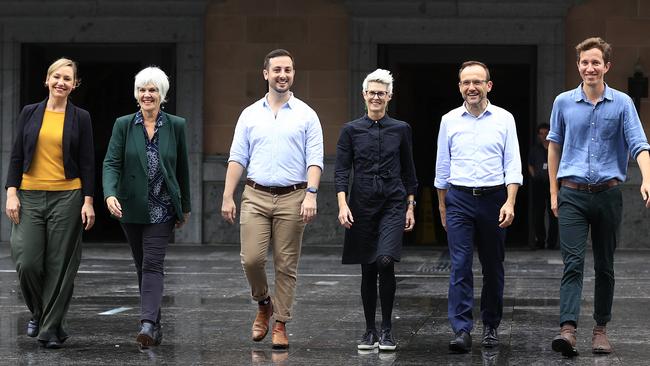
The transformation in the parliament has a power and social dimension. Albanese says he wants “to change the way that politics is conducted” – what counts is not whether this is possible but seeing Albanese rewarded by bowing to the new zeitgeist. Gestures and optics will get tied up with numbers and policies. Albanese wants to bury Scott Morrison’s cultural legacy and dance on the grave.
His messages point to a possible Albanese style as prime minister: no heady rush to reform; a steady long-run outlook on governing; more emphasis on Hawke-type negotiating and bring people and groups together; a priority on competent government and integrity in administration; running on safe changes for his progressive base from climate to women’s justice to childcare; and being brutally open with the public about the scale of the economic challenge. This won’t be easy to navigate with only 32 per cent of the primary vote. But if Labor is disciplined Albanese’s strategy may be more successful than his critics imagine.
Blaming the outgoing Morrison government for Labor’s inherited woes is a natural response but Albo needs to be careful – isn’t that old-fashioned divisive politics? Hypocrisy might be on the march. Morrison needs to steel himself for massive assaults on his record.
The Liberals are taking the right decision, the only tenable step, in making Peter Dutton the new leader given the devastating loss of Josh Frydenberg in Kooyong. Electing Sussan Ley as deputy, as appears likely, gives them the best balanced team in adversity.
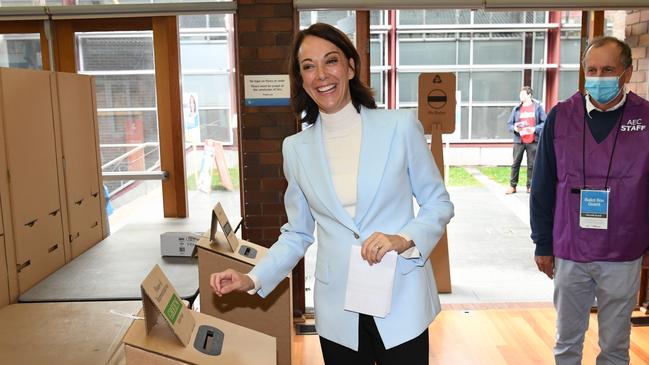
The Liberals have lost at least 10 seats to Labor, one or two seats to the Greens and six seats lost to teal independents (Wentworth, Kooyong, Goldstein, North Sydney, Mackellar and Curtin). The results reveal the unprecedented nature of this poll – the eruption of a new progressive or centre-left majority based on Labor, Greens and teals, driven by forces punishing the Liberals from different directions. Nobody should think the teals are done given climate change is a permanent issue.
If the Liberals engage in the public and damaging squabble about whether to move left or right, they will confirm their crisis and confusion. Dutton got it right saying: “We aren’t the Moderate Party. We aren’t the Conservative Party. We are the Liberal Party.”
The interim Albanese government of five ministers was hit by two doses of reality in its first week – sobering advice on the economy and alarming strategic assertion by China.
New Treasurer Jim Chalmers promptly redrew the economic markers – his messages were dominated by budget responsibility and managing down expectations. Warning about the magnitude of the economic problem, Chalmers said after his briefings the budget position was dire, that inflation was skyrocketing, that households must brace for a “power price spike before things get better” and that there was no “flick a switch” solution to high debt and negative real wages.
Get the message? The economy has pivoted to high inflation and Labor’s policy is pivoting from the campaign to reality.
Chalmers said his approach as Treasurer was to be “blunt and frank and upfront with the Australian people”. He played down more cost-of-living relief that would cost billions.
All this will give Dutton some rich targets to hit. But Chalmers is right – he needs to change the country’s mindset from the futile expectations of endless public support.
Labor’s nerves will be tested. The rising interest rate cycle has a long way to run; the tough fiscal challenge is permanent. Chalmers sold the same message as Albanese – the country needs to come together to tackle these challenges. Albanese and Chalmers must find the balance between keeping people optimistic and bursting false expectations.
Chalmers says “we can’t do everything we’d like to” – his first budget will honour Labor’s election pledges and set the fiscal trajectory.
Albanese must govern from strength. If he gets spooked by his narrow majority the descent will be rapid. Everything depends on his recognition that the Liberals are structurally damaged by their ongoing fight on two fronts. The teals will be hard to dislodge at the next election.
The reality is that Albanese can lose seats at the next election but not lose office – he can remain in minority government courtesy of the crossbench. Albo naturally wants to avoid that – but the point is Labor enjoys a buffer in our new political realignment. An expanded crossbench increases the probability of minority governments.
On the national security front, the China crisis is now owed by Albanese. His destiny is to become a national security prime minister; witness the remarkable and unprecedented rivalry now underway in the Pacific with competing visits by Australian and Chinese foreign ministers – this in Albo’s first week. Indeed, there has rarely been a first week of such high level diplomacy for a new Australian prime minister.
This is going to change Albanese, how exactly we cannot predict. But Albanese will find, like Morrison, his prime ministership will be shaped by his strength and judgment in responding to China’s complex strategic and diplomatic tactics and threats.
After being sworn-in, Albanese flew to Japan to meet the Quad leaders from the US, Japan and India while his Foreign Minister, Penny Wong, who accompanied him, was quickly dispatched to the Pacific to combat China’s initiatives.
For Albanese, a diplomatic amateur, the optics were brilliant. His opening two days in office involved meetings with US President Joe Biden and leaders of Asia’s two major democracies, Japan’s Fumio Kishida and India’s Narendra Modi. Albanese was careful; there were no mistakes. A smooth entry into prime ministerial diplomacy, frequently conducted in public view, is now fundamental to the job. For Albanese, these talks would have been invaluable in building his confidence. He played it safe – running on climate change, Biden’s abiding obsession.
After China’s Premier, Li Keqiang, sent a warm message of congratulations – a diplomatic gesture for which Labor was ready – Albanese was cautious and unwavering. He said relations with China would remain “difficult”, noted China’s continuing trade sanctions against Australia and reminded that the origin of the dispute was that China, not Australia, had changed.
The media had barely analysed these events before Reuters revealed a draft Chinese agreement seeking a deal with 10 Pacific nations with Beijing offering cyber support, policing and security along with free trade to be advanced during the regional visit by China’s Foreign Minister, Wang Yi.
Wong has been thrown a profound challenge – trying to hold back the full extent of China’s strategic ambitions on Australia’s doorstep while inheriting a longstanding Coalition-Labor Pacific policy model that no longer delivers.
“China has made its intentions clear,” Wong said. “So too are the intentions of the new Australian government.” Her urgent visit to the Pacific coinciding with the rival visit by Wang highlights the open strategic competition between Australia and China that is Albanese’s inheritance
In Fiji Wong pledged a “new era” in Australia’s Pacific engagement and reassured the region that a “huge groundswell” of support had emerged in Australia for “real action on the climate crisis”. That’s good – as long as Labor realises climate action alone can’t do the trick. Wong warned Pacific leaders that deals with China could threaten their independence – but China comes with deep pockets, under the desk rewards and insidious temptation.
Albanese and Wong will attend the Pacific Islands Forum in mid-July. The Pacific, Papua New Guinea and Indonesia will become their vital priorities. Albanese, like Morrison, is going to be stretched having to manage both domestic challenges and permanent pressure from China.
How close will Albanese channel Biden on China? That depends on US moves but the probable answer is “very close” given China’s growing ambitions close to our borders. Might Beijing get smart and offer to abandon the trade sanctions against Australia entirely, thereby playing with Labor’s mind and inviting new policy options from Canberra? That’s what it needs to do. Presumably Beijing isn’t that smart.
At home, Albanese knows everything depends on getting his tactical separation sorted from the left, notably the empowered Greens. This is where Gillard destroyed her government. Albanese faces a different situation – but the consequences are just as potentially deadly. Dutton knows the single most fortuitous path to Liberal resurrection would be public perceptions of a Labor-Greens government.
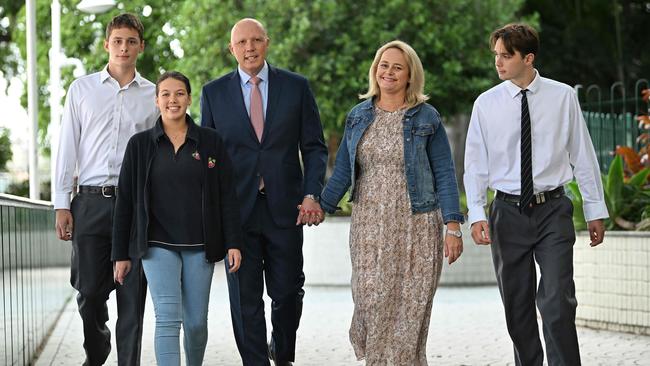
The Greens will re-enter the parliament with greater numbers and a sense of triumph. The power balance in the Senate has changed in favour of the Greens. The Pauline Hanson and Jacqui Lambie parties are likely to be marginalised. Labor with 26 senators and the Greens with 12 senators will have a total of 38 senators, a blocking majority in the 76 strong chamber. The win in the ACT by pro-climate independent David Pocock should deliver a progressive majority on issues where the Coalition votes against Labor.
Albanese is determined the reality and perception will be a Labor government in its own right. But there are risks in the dynamics of Senate numbers. The early test comes on Labor’s climate change legislation. When Bowen devised Labor’s policy last year his design meant legislation was not essential – but Labor will put its legislation and drive both the Greens and Coalition into agonising choices.
If the Coalition votes against the 43 per cent target, it announces it has no interest in doing more on climate change. If the Greens vote against the 43 per cent target they announce they have learnt nothing since 2009 and will let the so-called perfect be the enemy of the good. If both sides are bloody-minded Labor will withdraw the legislation and operate by ministerial directive.
The climate difference between Labor and the Greens are a chasm. The Greens have a political target divorced from real world economics. They dismiss the Labor-Coalition net zero at 2050 policy “a death sentence”. The Greens want a 75 per cent reduction target at 2030 along with the phase out of coal and gas. Many teals are nearly as extreme with a 60 per cent emissions reduction target at 2050 – again, this is political posturing.
The scale of these differences suggest the Greens and the teals will continue to enjoy strong support in their constituencies. Majority ALP government will assist the teals, who won’t be contaminated by governing responsibility and can parade their useless political purity to their supporters.
Expect the teals to keep or even expand their seats. That means the Liberals are in a structural trap. There is no way the Liberals can claw back solely from Labor all the seats they need to win government next time. Albanese has hidden strengths in our realigned politics – but as a conscript of history he will need them.


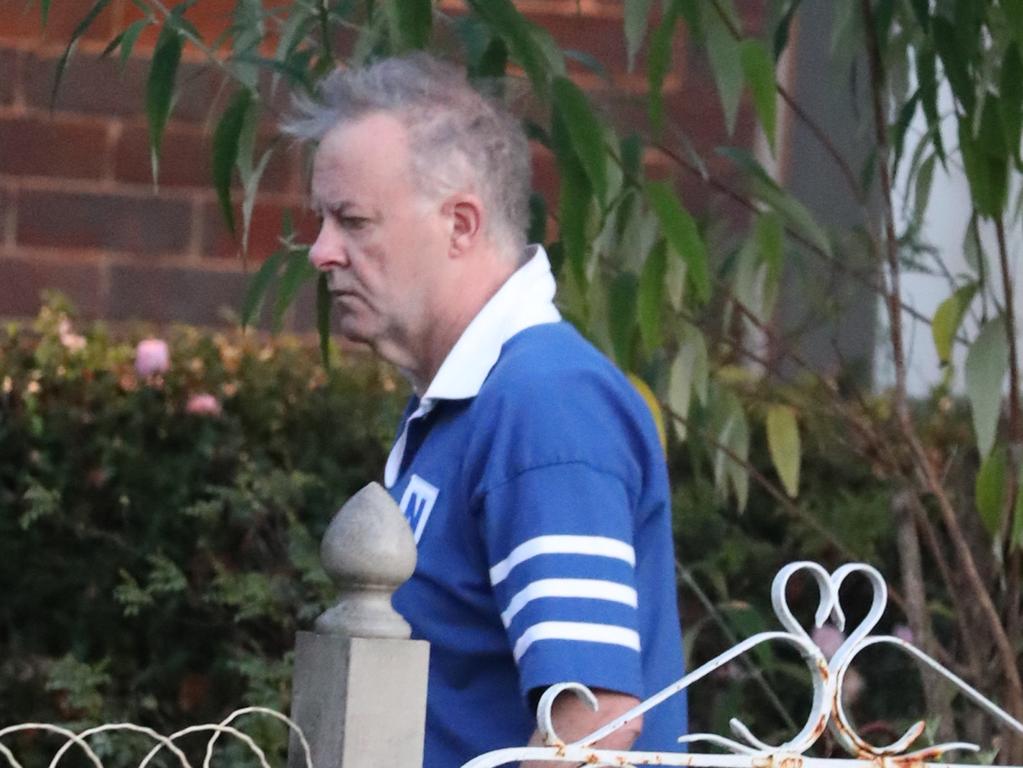
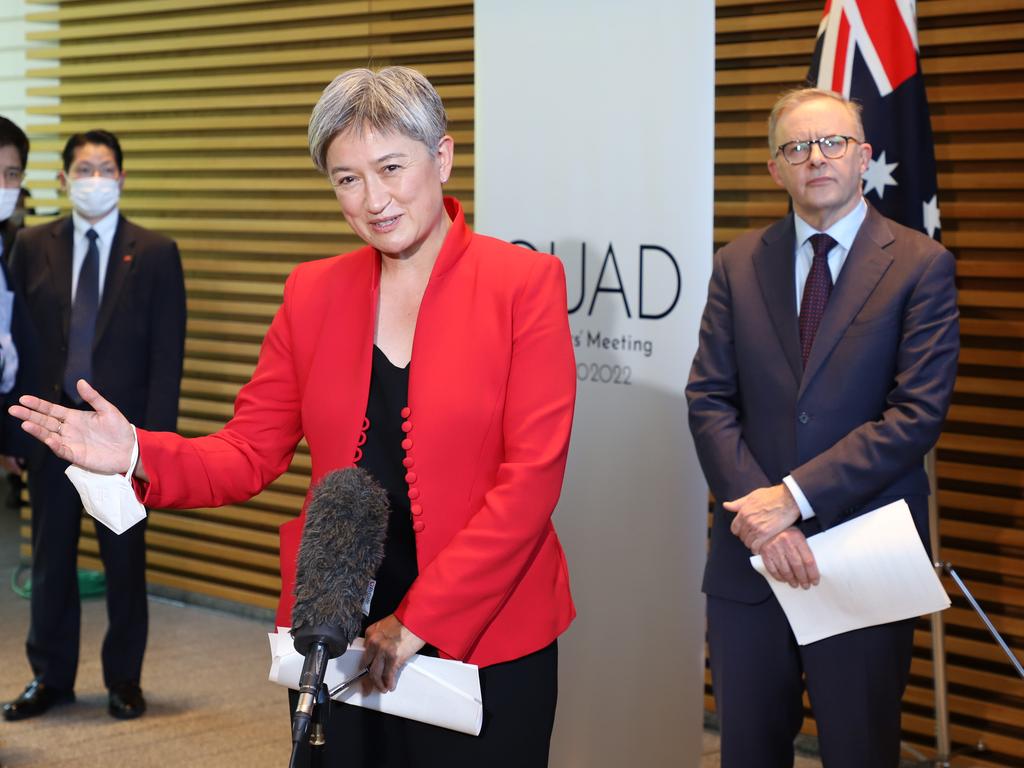
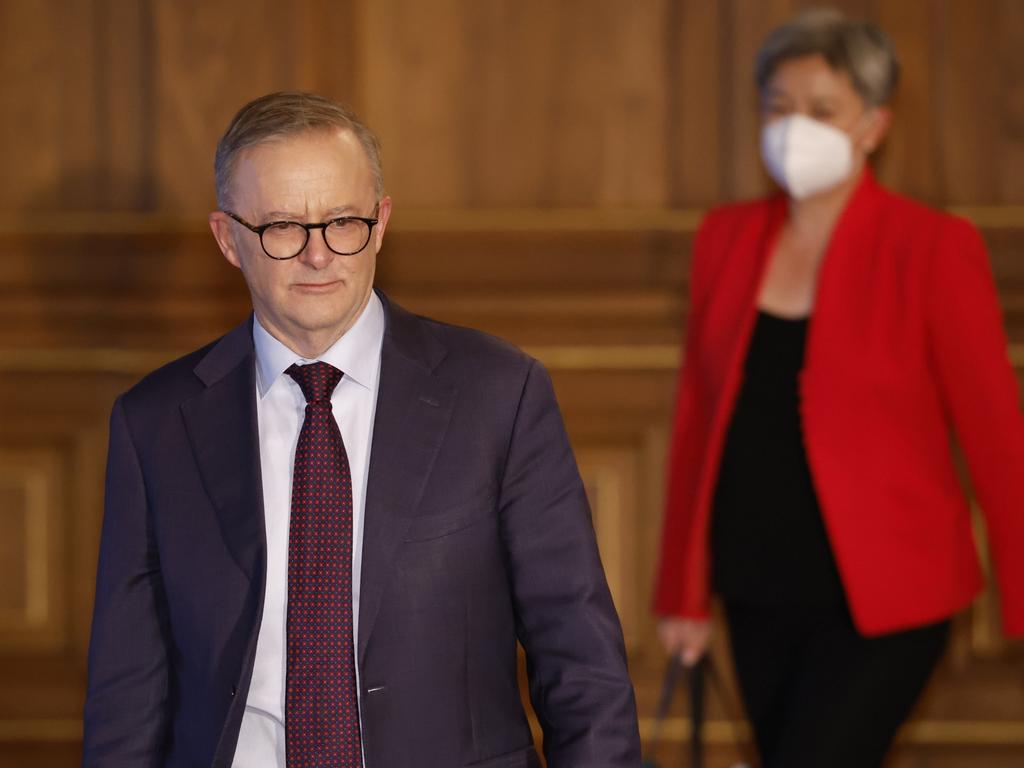
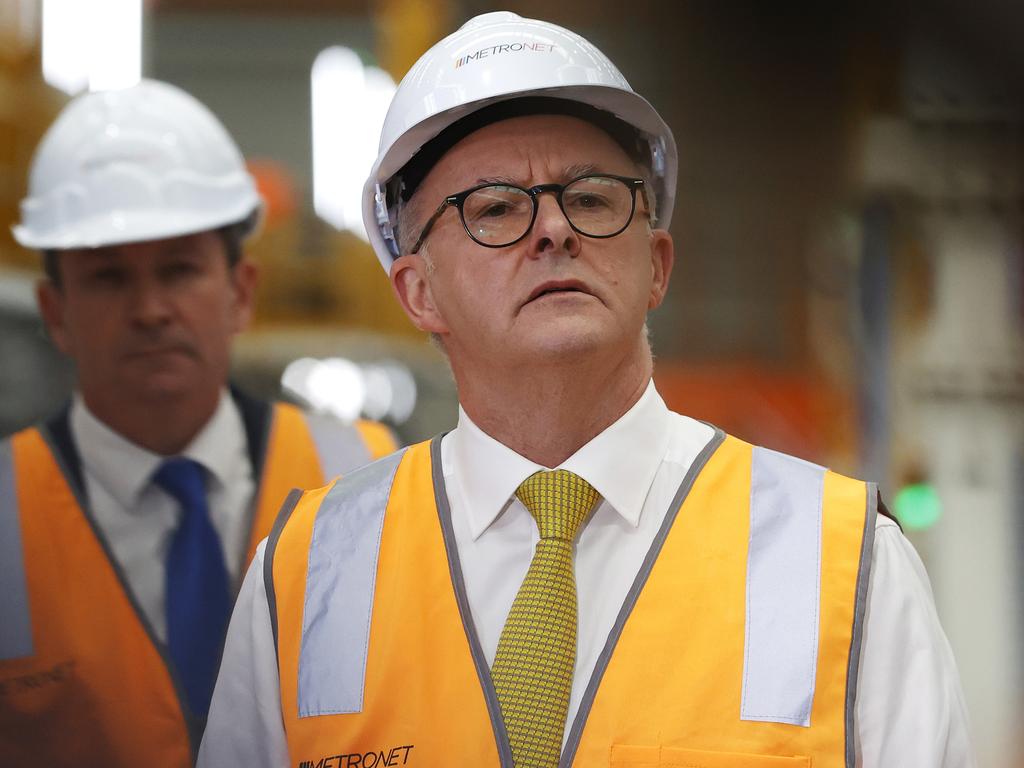
Anthony Albanese’s position as a new prime minister is stronger than it appears. Albanese benefits because this election delivers two results – a narrow ALP governing majority and a structural collapse in the social and cultural foundations of the Liberal Party vote.